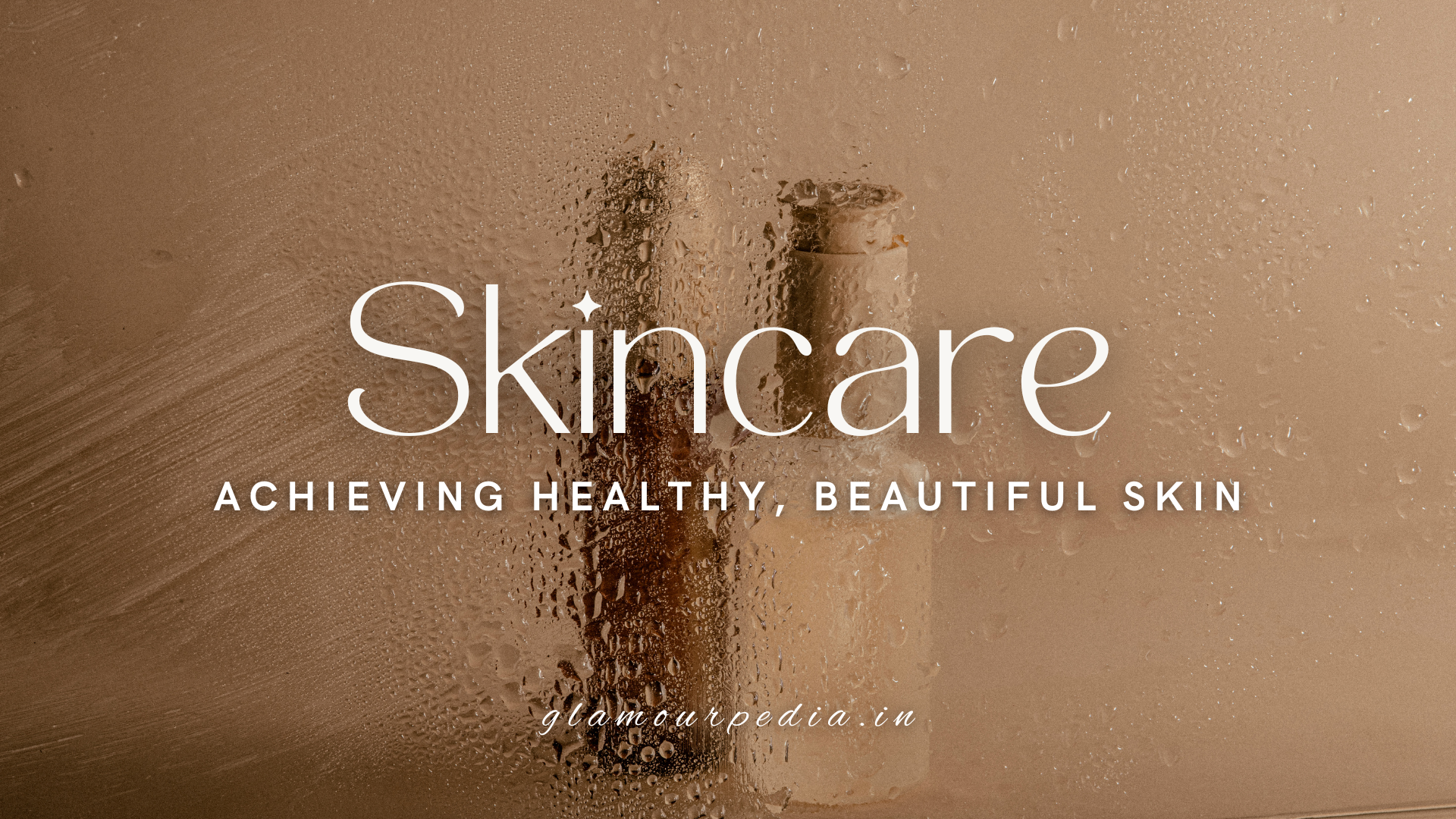
In todays world it’s easy to feel the constant demands of work, social life, and personal responsibilities. Living a heathy life and a good skincare improves your overall skin. There is no doubt that healthy and beautiful skin is the key elements of having attractive and glowing appearance. Currently we have such a wide assortment of various skin care products in the market. They are divided into different groups and age categories, for dry skin, oily skin, young and old skin. Moreover they are presented through different channels such as TV and social media advertisements and many ways that fully convince you to believe that their product is the best one it will make your skin healthy and presentable and shines as the “Star’s skin”. Never the less, despite such a variety of choice, it is still hard to find truly suitable one for yourself. I tried a big number of different creams and didn’t see promised result.
The Ultimate Guide for Skincare: Tips for Healthy, Glowing Skin
Taking care of your skin is not only important for cultured reasons, although your average fitness and proper are happening. With proper skincare recurring, you can catch healthy, glowing holes and skin, mold it with cruel elements, and prevent early signs of getting old. In this manual, we dive into the basic principles of skincare, speak the necessary steps, and the percentage pointers that will help you achieve your extraordinary pores and skin. Skin are the largest part of the body and acts as a defensive barrier. It molds our internal structures with dangerous environmental factors such as UV rays, pollutants and bacteria. However, without proper care, the skin can be damaged, dry, or responsible for various problems such as zits, wrinkles, and pigmentation. Maintaining an excellent skin care routine is moving beyond aesthetics it is almost preserving skin fitness. Time out to take care of your pores and skin will help to see it and will make it feel good, allowing it to fulfill its protective responsibilities ,stay longer.
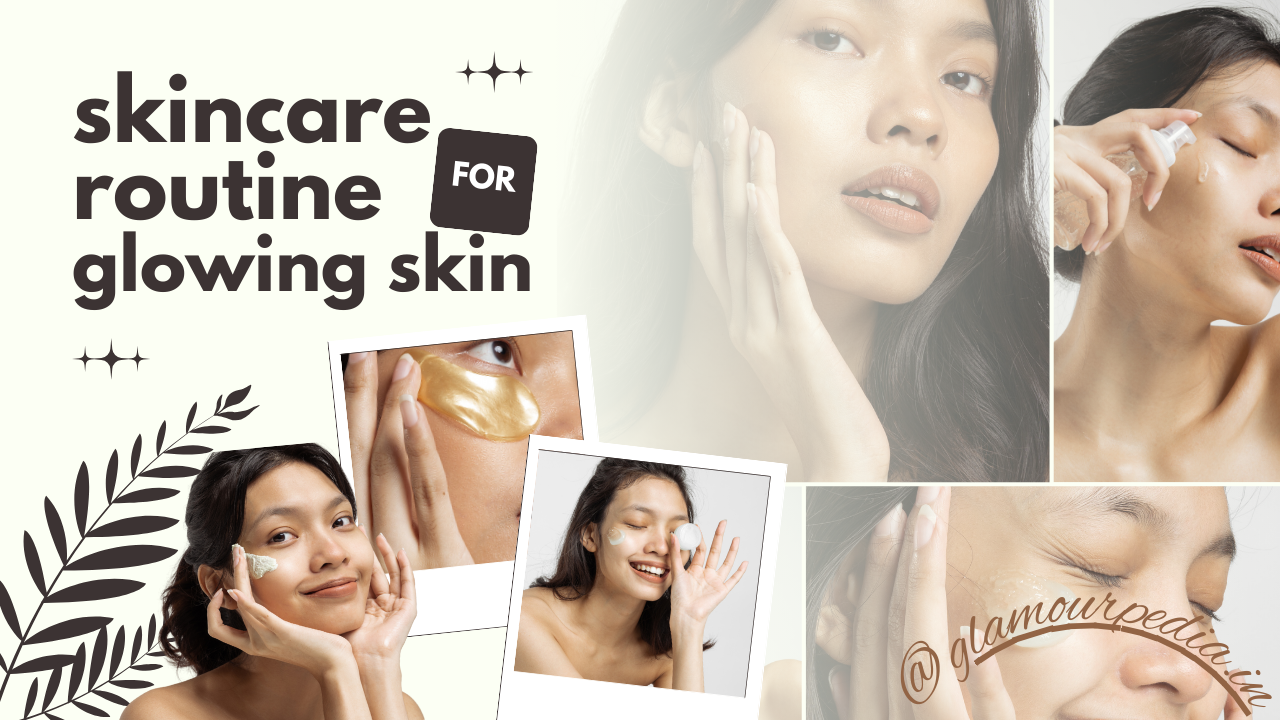
Before starting the skincare adventure, it is important to feel your skin type. Different pores and skin types require extraordinary care, and the use of goods for your pores and skin types can create a huge difference.
Normal skin: well balanced, neither too oily nor too drought. It feels smooth and not touch.
Oily skin: Excessive oil formation can induce a sparkly look, especially in T-zone (forehead, nostril and chin). Oily skin can also be additional prone to zits.
Dry skin: Lack of moisture and can understand tight, flaky, or rigid. Dried pores and skin may be at risk of iris.
Combination skin: This type of skin has oily and dry areas in combination. Here, the T-zone is generally greasy and the cheeks are very dry to the touch, type, etc.
Sensitive Skin: Sensitive skin means a skin that is easily prickled and may be a source of redness/rash/breakouts. Common aggressors include rough substances or climatic changes.
Acne or breakouts: These are due to oil, clogged pores, or hormonal derangements of the skin.
Hyperpigmentation: This is the time of basis when hyperpigmentation and maculation occur on the skin and unevenness develops, as a result of some isolated sun exposure, acne scarring or as a result of natural aging.
Fine lines and wrinkles: These are physiological correlates of normal aging, which can be hastened by sun exposure and smoking.
Rosacea: This is a chronic skin disease with redness, pimples and visible blood vessels, often on the face.
Dryness and Dehydration: Dryness has to do with absence of oil, while dehydration consists with loss of water booth in the skin. Regardless of the case, feeling bumpy and constricting can occur with the skin.
Since you are now certain of your skin type and problems, it is time to build a customizable skincare regimen.
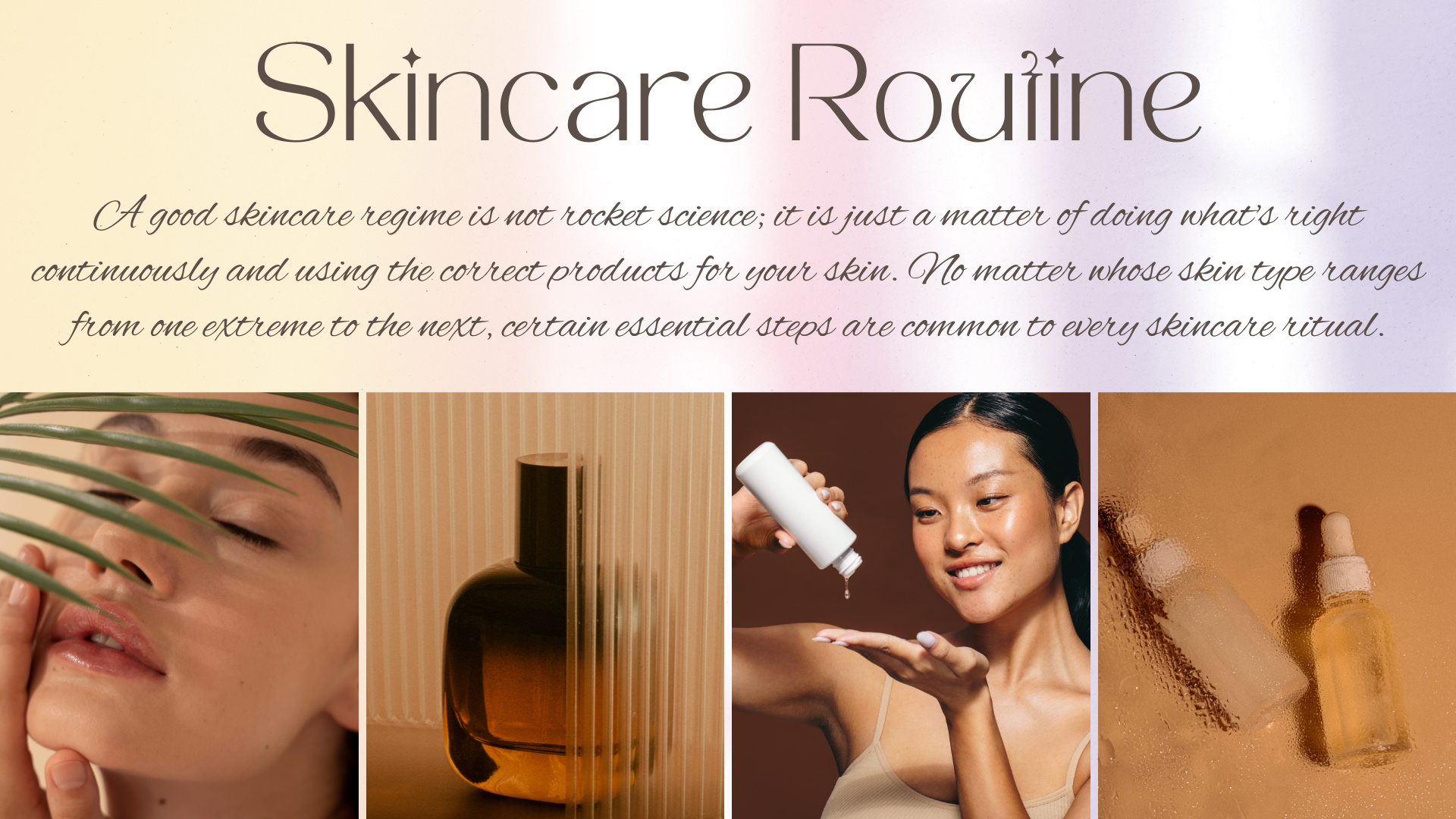
Cleansing
Cleansing is the first step in any skincare routine in order to eliminate dirt, makeup, oil, and any other impurities. Generally, a mild cleanser best suited to a particular skin type would aid in curing breakouts and prep the skin for the following products.
For dry skin: Choose creamy and hydrating cleansers with ingredients that include glycerin or ceramides; for oily skin: Gel-based foaming cleansers that do not strip the skin but efficiently regulate oil content.
For sensitive skin: Non-foaming fragrance-free cleanser, as it is soothing and gentle.
Combination skin: Try for a gentle, non-stripping one; gel formulations generally work best for this skin type.
Exfoliating
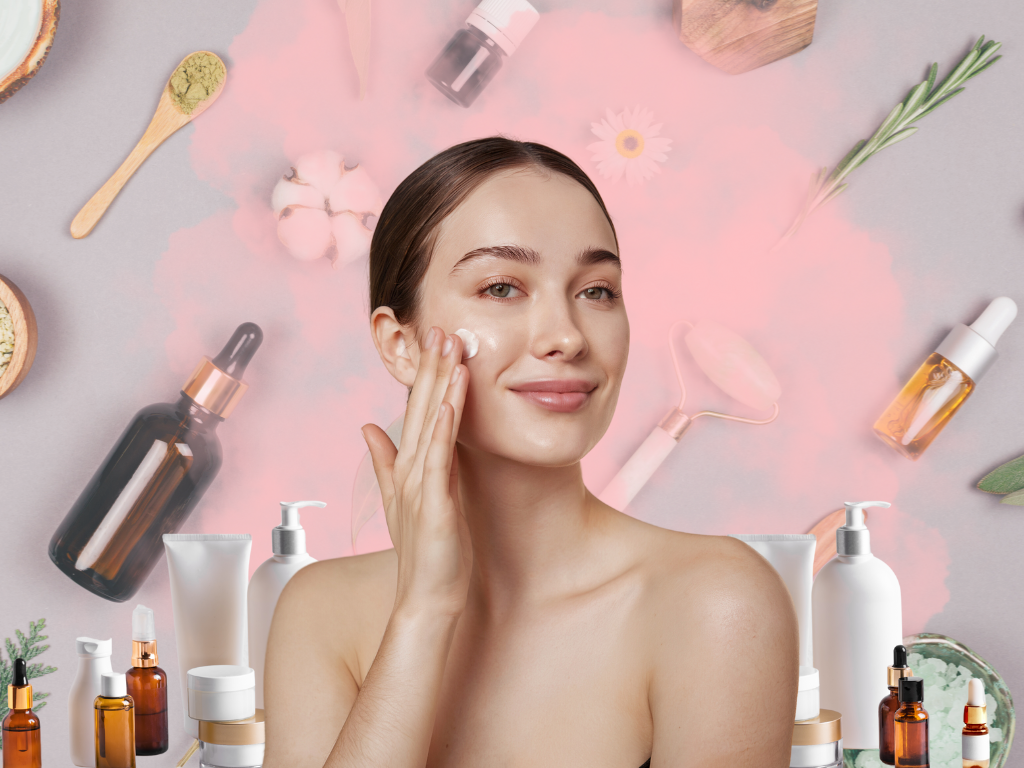
Exfoliation is a great way to peel off old skin cells and stimulate the turnover of the growth of new skin. However, that does not mean you should over-exfoliate because this can cause irritation. Physical exfoliates are gladiators scrubbing beads or particles. Although effective, they may prove overly abrasive for extremely sensitive skin. Whereas a chemical exfoliate employs alpha and beta Hyaluronic acid or other agents to break down the dead skin. Water-soluble Alpha-Hyaluronic acid, including glycolic acid, are surface-active, while beta-Hyaluronic acid (such as salicylic acid) penetrate the skin for acne-clearing benefits. Based on your skin type, exfoliate from 1 to 3 times per week, but be cautious not to over-exfoliate, or else you'll cause friction and sensitive skin.
Serums
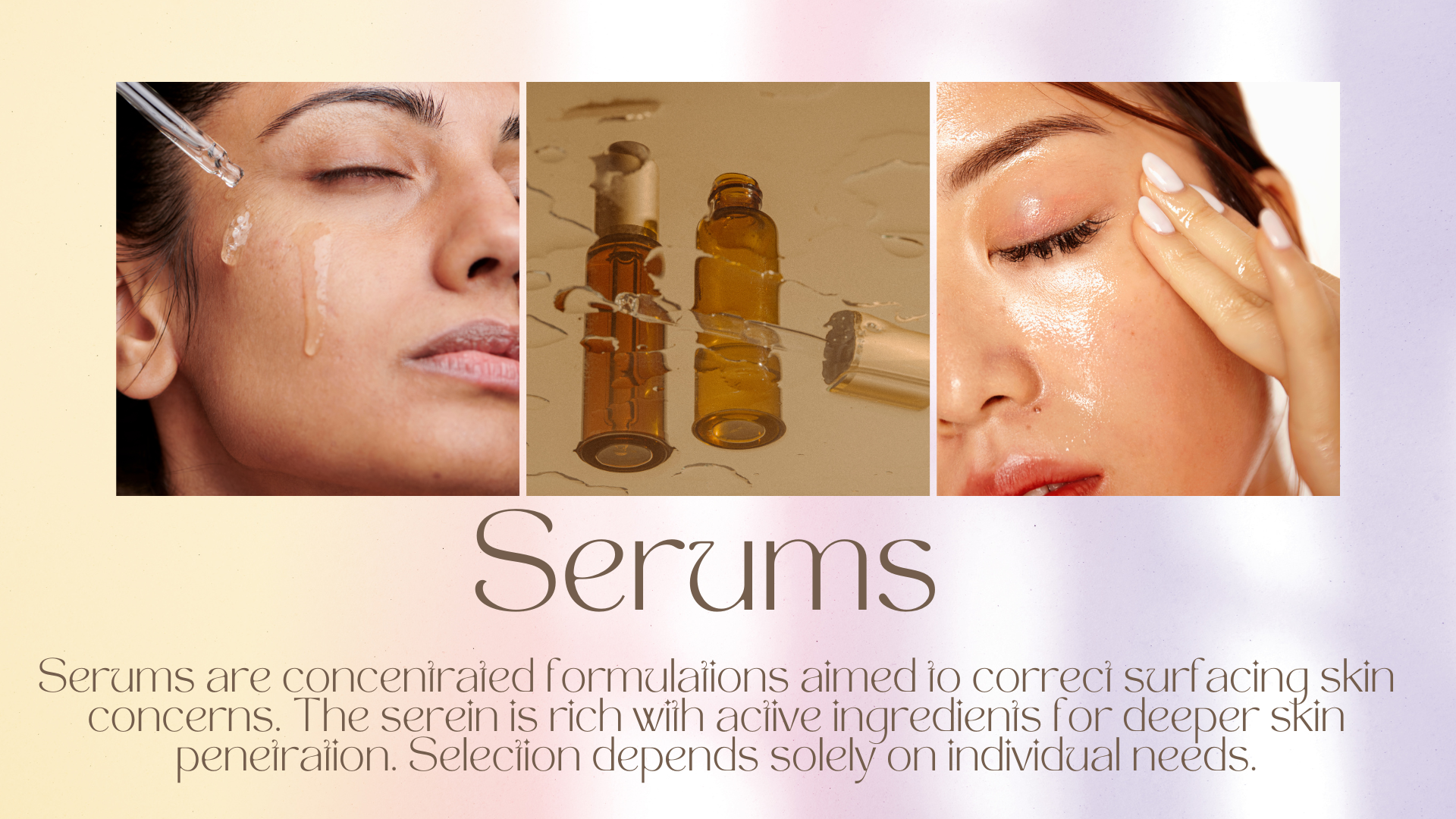
Serums with Vitamin C are best in helping with brightening skin, managing pigmentation, and treating free radical damage.
Serums with hyaluronic acid do best to keep dry or dehydrated skin hydrated.
Serums with Niacinamide balance oil production, reduce any redness, and minimize pores.
Serums containing retinol (vitamin A) may work best for anti-age and acne management by promoting skin cell turnover and collagen production.
Moisturizer and Sunscreen
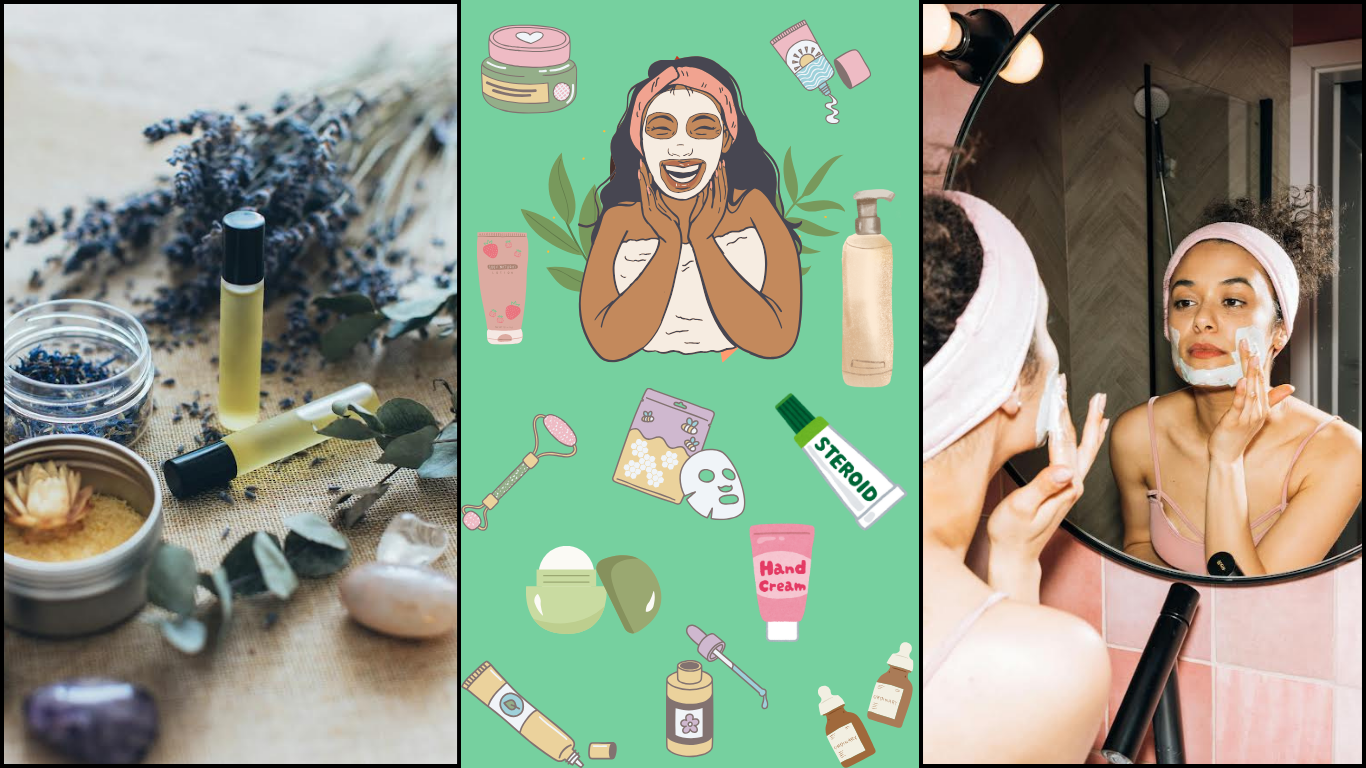
Moisturizing is a key component of every skincare routine, no matter your skin type. It helps seal moisture tight, to protect the skin barrier and to help with softness. Sunscreen is the most one thing that protects your skin from harmful UV rays. Daily sun protection prevents ageing and pigmentation, as well as possible skin cancer. A sunscreen with SPF 30 or more should be the typical use Broad-spectrum sunscreens protect against both UVA (aging) and UVB (burning) rays. Sunscreens are sprays, lotions, and tinted versions for protection. Remember to apply enough sunscreen to your face and neck every morning of every day, on cloudy days and even when indoors, since UVA rays are so penetrating that they can penetrate even through windows so use it daily.
These are some suggestions for lifestyle changes with clear, glowing skin, then a good skincare Remedies would be valuable
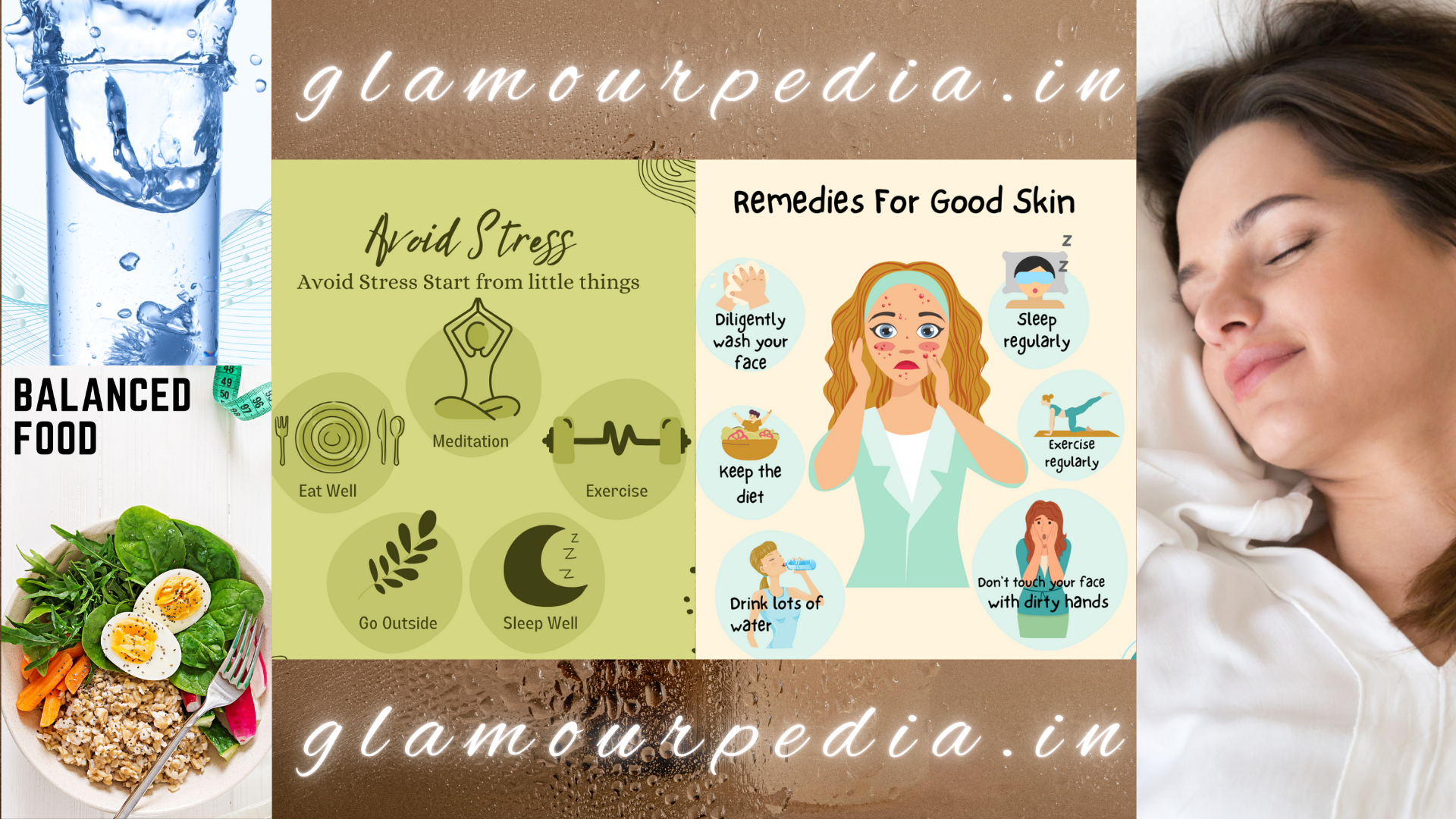
- Drinking Water
Good hydration from the beginning allows the skin to keep hydrated on the inside. It’s great to aim for at least 8 glasses a day, along with foods containing abundant water, like watermelons and cucumbers.
- Balanced Food
What you eat ranks amongst the factors for skin healing. Antioxidants, vitamins, and unsaturated fats have been shown to grant clear, glowing skin; these include berries, nuts, avocados, and green vegetables.
- Enough Sleep
While asleep, the body repairs itself, including the skin. Aim to get perhaps at least 7 to 8 hours of sleep each night to boost skin health.
- Avoid Stress
Chronic stress can do damage to your skin and will express in form of teenage breakouts or dullness and related problems. Practice something that releases your stress, like yoga, meditation, or a simple very calming walk outdoors.
- Don’t Touch Your Face
Your hands are a whole bunch of germs, dirt, and oils transferred to your skin. Avoid touching your face, wash your hands before using skincare or makeup.


